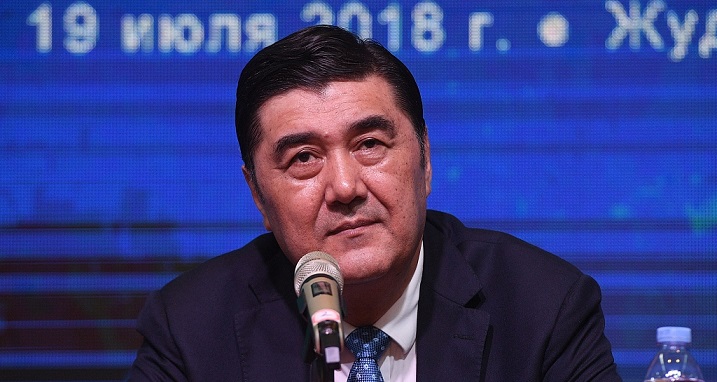Beijing Investigates ‘Serious’ Violations by Energy Agency Chief
September 21, 2018 | Expert Insights

China is investigating the head of its National Energy Administration, the latest official caught in President Xi Jinping’s anti-corruption drive that has scrutinised over a million officials.
Background
Nur Bekri is a Chinese politician of Uyghur origin, currently serving as a minister-level Vice Chairman of the National Development and Reform Commission and Director of the National Energy Administration. Bekri is one of the highest ranked ethnic-minority officials in the Chinese government.
He was the Chairman of the Xinjiang Uyghur Autonomous Region, a vast region in northwestern China, between 2008 and 2014. Born and raised in Xinjiang, he spent his entire life in the Region, aside from a short stint as the Deputy Mayor of Feicheng, Shandong province. He is also a former Mayor of Urumqi, the capital of Xinjiang. He was dismissed from his post and under invest by the Central Commission for Discipline Inspection and the National Supervisory Commission in 2018.
NEA was established in August 2008, replacing the National Energy Bureau which attempted to reform China’s highly dispersed energy management. The NEA is tasked to produce energy use regulations and drafting laws. As China becomes the world’s largest consumer of energy (in all forms), the NEA grows in influence mainly through its ability to regulate domestic production and storage.
Analysis
NEA Director Nur Bekri, 57, is accused of “serious” disciplinary violations, China’s Central Commission for Discipline Inspection said in a statement Friday. Bekri, an ethnic Uighur and previously a long-time chief of Xinjiang autonomous region, is also vice chairman of the National Development & Reform Commission.
An NEA spokesman referred questions to the inspection commission. Bekri was traveling to Russia as an aide to Vice Premier Han Zheng as recently as Tuesday, according to the NDRC. He was still listed as NEA chief on its website Friday morning but had been removed by afternoon.
Bekri took over the NEA in December 2014, heading the government arm tasked with drafting energy laws and policies. While China’s energy decisions are ultimately driven by NDRC, the top economic planning body, and the State Council, the nation’s cabinet, Bekri was the public face of efforts by China, the world’s biggest energy consumer, to use cleaner fuels.
Some of these backfired, including a lack of heat in some regions last winter after a botched sprint to switch homes to natural gas, and the 2016 coal price spike amid efforts to ease coal output.
While the statement provided no details of the charges, authorities typically use “disciplinary violations” to describe people under investigation for graft amid the anti-corruption campaign that’s netted over 1.5 million officials.
The NEA’s deputy director, Wang Xiaolin, has also been investigated for similar charges, official Xinhua News Agency reported in January. As well, one of Bekri’s predecessors, Liu Tienan, was sentenced in 2014 to life in prison for taking 36 million yuan ($5.3 million) in bribes to approve projects.
During Bekri’s NEA tenure, China built up strategic petroleum reserves as its crude output tumbled amid the crash in prices, assembled the world’s largest array of renewable energy generation, started cutting outdated coal production capacity.
His policies pushed homes and factories to switch to natural gas. In that period, it overtook the U.S. and Japan as the world’s biggest importer of oil and natural gas, respectively.
Assessment
Our assessment is that China is in the middle of a purge-like anti-corruption drive which seeks to transform Xi’s image into an iron-willed anti-corruption crusader. We believe that Nur Bekri is just the latest in a long list of high-profile officials who could be targeted by the anti-corruption drive if they do not cede complete loyalty to Xi. We also feel that the corruption drive could be a disguise to weed out anti-Xi officials, thereby clearing a path for the Chinese president to govern as he prefers.








Comments